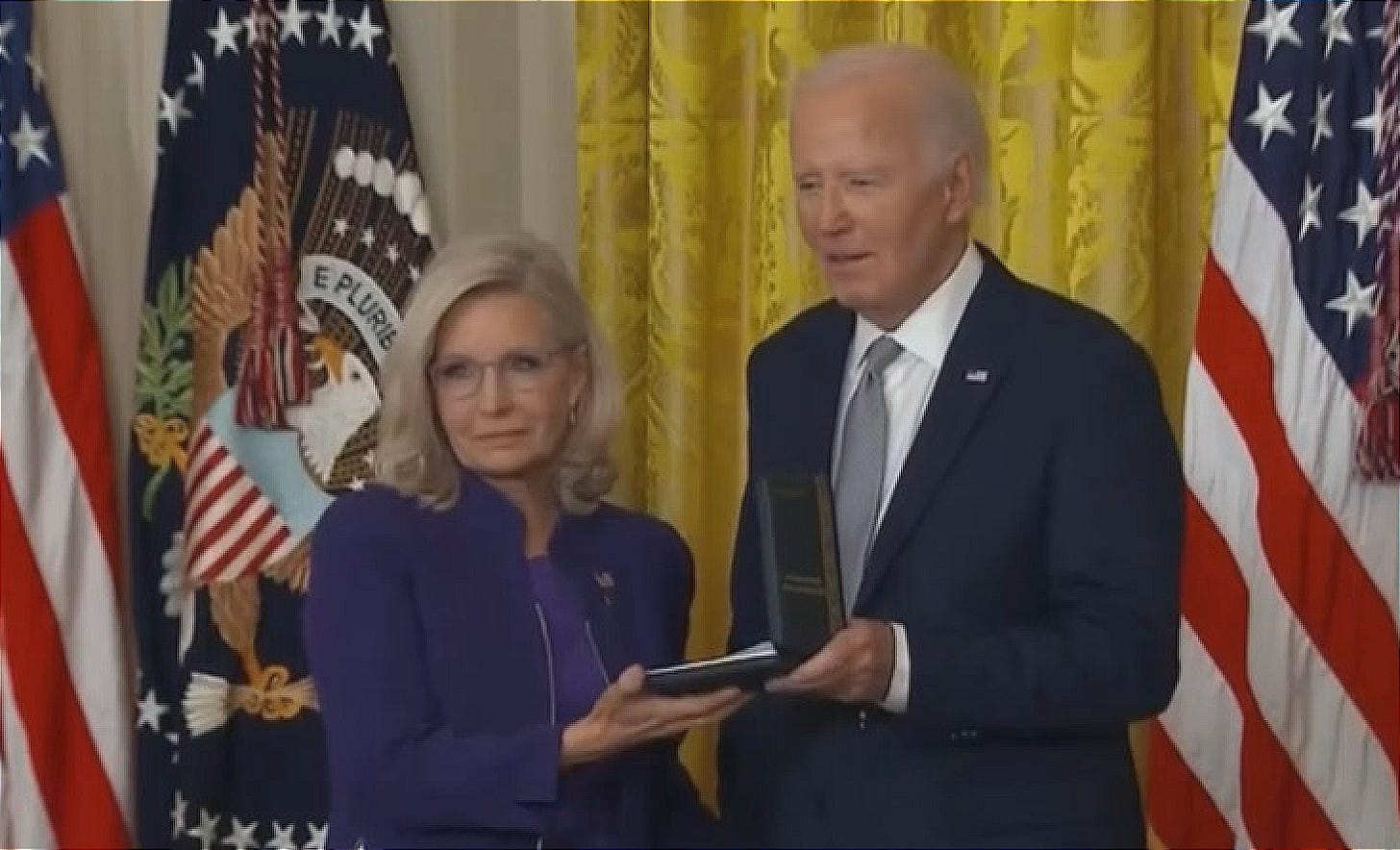New Orleans attack sparks fears of ISIS’s influence in the U.S.
Also: Johnson's narrow Speaker victory, minimum wage increasing in 21 states, and alarms sounding on alcohol use
This newsletter is sponsored by SideShift - your go-to platform for finding part-time gigs as a Gen-Zer. Download the app here.
The horrific New Year’s Day attack in New Orleans has left many Americans fearful about the presence of terrorism in the United States.
Shamsud-Din Jabbar, a 42-year-old Army veteran, drove a truck into a crowd on Bourbon Street, killing 15 people before being fatally shot in a confrontation with police. In videos posted just hours before the attack, Jabbar pledged allegiance to the Islamic State (ISIS) and left an ISIS flag in his vehicle.
Authorities initially considered the possibility that Jabbar had accomplices but later confirmed there was no evidence of coordination with ISIS leaders, and believed he acted alone. Jabbar served in Afghanistan but faced significant personal and financial challenges after leaving the military. His growing disillusionment eventually led to self-radicalization, driven by extremist content he encountered online.
U.S. officials have repeatedly warned that tensions in the Middle East, such as the ongoing conflicts in Gaza, Lebanon, and Central Asia, could inspire small, radicalized groups or lone individuals to commit acts of violence domestically. FBI Director Christopher Wray has emphasized the heightened risks of individuals or groups drawing inspiration from global conflicts to perpetrate attacks in the United States.
Although ISIS lost its last physical territorial stronghold in 2019, it has regained strength through affiliates in Afghanistan, Africa, and parts of Syria, and maintains a robust internet presence that continues to fuel extremist ideologies. By glorifying simple but devastating attacks—such as vehicle rammings and stabbings—ISIS encourages individuals to commit acts of violence without direct training or communication. The group spreads its ideology through social media platforms, encrypted messaging apps, and digital publications, inspiring "lone wolf" attackers worldwide.
Experts warn that attacks like the one in New Orleans result from this decentralized strategy. Traditional counterterrorism methods, such as military operations, are less effective against the rising tide of online radicalization. Addressing this issue will require a combination of digital literacy education, mental health support, and early intervention to assist individuals at risk of radicalization. Efforts must also focus on dismantling the digital networks that propagate extremist content.
Adding to the complexity, authorities are investigating whether the New Orleans attack is connected to an explosion outside the Trump International Hotel in Las Vegas later that day. In that incident, Matthew Livelsberger, a 37-year-old active-duty soldier, died when a Tesla Cybertruck exploded near the hotel, injuring seven others. Police noted several parallels between the two events, including both men using the same car-sharing app, Turo, and their shared service at Fort Bragg in North Carolina. However, no conclusive evidence has linked the two cases.
Livelsberger’s death remains under investigation. Las Vegas police revealed that Livelsberger sustained a gunshot wound to the head, believed to be self-inflicted, before the explosion. The location of the blast has raised questions due to Tesla’s association with Elon Musk, a prominent ally of President-elect Trump.
These tragic events underscore the challenges faced by veterans and active-duty soldiers as they transition to civilian life. The stories of Jabbar and Livelsberger point to a pressing need for comprehensive support systems to address the financial, psychological, and personal struggles many in the military community experience.
↪ See also: 'So beautiful and full of life': What we know about the victims of the New Orleans attack (ABC News)
🌎 Around the world
➤ Gaza Truce Looks Unlikely Before Trump’s Inauguration
Despite a recent Biden administration push, talks between Israel and Hamas to end the war appear increasingly deadlocked, according to officials familiar with the discussions. (New York Times)
➤ Yoon Suk Yeol: The failed attempt to arrest South Korea president explained
After a dramatic six-hour long standoff with security, South Korean police have called off an attempt to arrest suspended President Yoon Suk Yeol. (BBC)
➤ In Norway, nearly all new cars sold in 2024 were fully electric
Nine out of ten new cars sold in Norway last year were powered by battery only, registration data showed on Thursday, placing the country within reach of its target of only adding cars that are electric on the road by 2025. (Reuters)
➤ ‘No heating, no light': Moldovans fear looming energy shortage as Russia halts gas supplies
On Jan. 1, Russia’s state-owned energy giant Gazprom is set to halt gas supplies to the European Union candidate country over an alleged $709 million debt for past supplies, a figure fiercely disputed by Moldova’s pro-Western government, that has accused Moscow of weaponizing energy as a political tool to destabilize the country. (Associated Press)
🗳️ Politics
➤ Johnson wins dramatic vote to remain House speaker
Mike Johnson was elected speaker of the House today after flipping two GOP opponents, but he’ll face a big challenge in Congress with the narrowest House majority in nearly 100 years. (CNN)
➤ 11 key lawmakers to watch in the new Congress
These rank-and-file members of both parties in the narrowly divided House could have an outsize role in the national debate at the outset of the new Trump administration. (NBC News)
➤ Cheney cheered as Biden awards her the Presidential Citizens Medal
The honor, the second highest civilian medal, is typically bestowed to Americans who have "performed exemplary deeds of service for their country or their fellow citizens." (Axios)
💰 Money
➤ New US jobless claims slip, but people are remaining unemployed for longer
Meanwhile, those who have lost work are finding it harder to find a new job and are remaining on benefits rolls for a longer stretch and pushing up the ranks of those collecting unemployment benefits for more than the first week. (Reuters)
➤ 21 states are getting minimum wage bumps in 2025
Those wage increases will impact an estimated 9.2 million workers and raise pay by a total of $5.7 billion, according to the Economic Policy Institute. (NPR)

⚕️Health and wellness
➤ Surgeon general calls for cancer warnings on alcohol
Dr. Vivek Murthy’s report cites studies linking alcoholic beverages to at least seven malignancies, including breast cancer. But to add warning labels, Congress would have to act. (New York Times)
➤ What virus is going around? The flu, COVID, norovirus – and don't forget RSV
Here's what to know about those "bugs" going around, including the virus that causes COVID, the flu, norovirus and RSV. (USA Today)
➤ 5 health changes to try in the new year, according to experts
Skip the rinse after brushing your teeth. And shampoo your hair regularly. (Washington Post)
👩💻 Technology
➤ Your phone is dirtier than a toilet seat. Here's how to clean it the right way
And, here are the products you should absolutely never use when cleaning your phone. (CNET)
➤ Future of space travel: Could robots really replace human astronauts?
The success of autonomous spacecraft – coupled with the rise of new advanced artificial intelligence – raises the question of what role humans might play in future space exploration. (BBC News)
More about our sponsor:
SideShift launched in June 2024 by 3 UW Madison graduates. Since launching the platform they have grown to have over 10,000 jobseekers, 150 businesses, and have already facilitated over 500 hires. SideShift primarily works with remote companies looking to establish campus ambassador programs, hire content creators, or bring on social media managers. Download the app here.
🍿Pop Culture
➤ Justin Baldoni files $250 million lawsuit against New York Times over Blake Lively story
Baldoni is among a group of 10 plaintiffs who are suing the newspaper for libel and false light invasion of privacy over the Dec. 21 article titled “‘We Can Bury Anyone’: Inside a Hollywood Smear Machine.” The parties claim that the Times relied on “‘cherry-picked’ and altered communications stripped of necessary context and deliberately spliced to mislead.” (Variety)
➤ Meghan Markle rejoins Instagram 5 years after stepping down from royal role
Her first post is a video of herself writing 2025 on a beach. (ABC News)
➤ Who is Bryan Johnson? All about the tech entrepreneur spending millions to live forever in Netflix’s new documentary Don’t Die
Bryan Johnson spends $2 million a year trying to reverse aging and avoid death (People)
📡 On the radar
➤ Welcome Gen Beta: A new generation of humanity starts in 2025
Babies born in the new year, and for the 14 years following, will make up the newest generation: Generation Beta. Its members will explore new digital landscapes, many of which we likely can't fathom now, and see the next century. (USA Today)
🙏 Thanks for reading!
We are looking forward to hearing from you as we build our community. Reply to this email, drop us a note here, or slide into our DMs on Substack with your thoughts. And don’t forget to follow us on Instagram and TikTok for more news.












